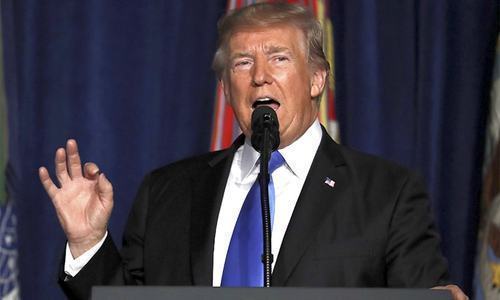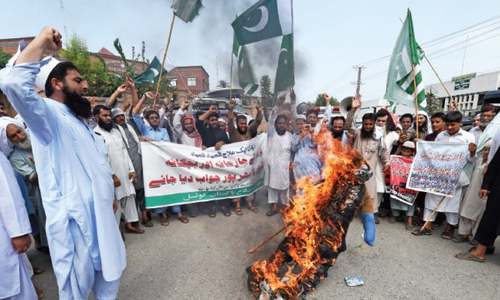Pakistan's diplomatic battles with the US must not be fought in the streets of the country.
There is certainly reason to be gravely concerned by US President Donald Trump’s so-called South Asia strategy: it more or less casts Pakistan in the role of regional villain; ignores all of the country’s justifiable security concerns; and recklessly threatens to exacerbate regional tensions by seeking a larger role for India in Afghanistan with no mention of China, Iran or Russia.
But faced with American pressure or unreasonableness, the temptation in security circles in Pakistan is often to respond more unreasonably. Perhaps most damaging is the mobilising of Pakistani public opinion against America; casting the US as a bully that wants nothing more than to damage, undermine and humiliate Pakistan.
That may have short-term benefits — an angry civil society, media and public can act as a legitimate buffer against American demands — but it is to the long-term detriment of the true national interest. Most obviously, it limits the state’s ability to have a frank and open dialogue with the US, and makes necessary adjustments to controversial policies on both sides more difficult to achieve.
The Raymond Davis episode and the Salala incident in 2011 demonstrated the damage that the reckless mobilisation of domestic public opinion in the myopic pursuit of national security goals can inflict. What may have been conceived as a legitimate expression of public unhappiness with an arrogant superpower was quickly hijacked by the ultra right and soon the state was under pressure to sever ties altogether with the US.
The creation of the Difa-i-Pakistan Council after the Salala incident exemplified the problem. The DPC’s virulent anti-Americanism threatened to morph into uncontrollable anger against the Pakistani state and a demand for the overthrow of the existing constitutional, democratic order in the country. The bilateral relationship with the US was somewhat stabilised eventually, but the DPC continued to exist and, in the latest crisis, has once again emerged to preach its agenda of isolation and regressiveness.
In the messy reality of the region, there is an undeniable fact: given Pakistan’s interests in Afghanistan, tumbling towards a rupture in ties with the most important external actor in that country, the US, in no way serves this country.
Governments and states certainly need the support of their publics in the pursuit of external policies, but the Pakistani state should be careful lest it becomes hostage to its own domestic propaganda.
Published in Dawn, August 30th, 2017














































